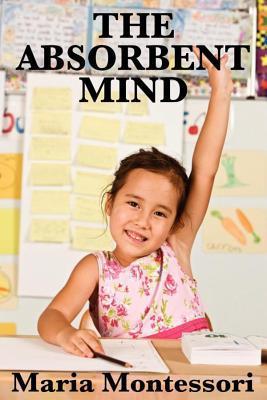
The Absorbent Mind
Maria Montessori
About the Author

Maria Montessori
Questions & Answers
The "absorbent mind" is a concept introduced by Maria Montessori, describing the unique ability of young children to absorb information and experiences from their environment without explicit teaching. This period, typically from birth to around six years of age, is characterized by a child's intense curiosity and eagerness to learn. The absorbent mind shapes early years development by allowing children to internalize language, culture, and social norms through observation and interaction. This process is unconscious and occurs through the child's interactions with the prepared environment, which includes materials and activities designed to cater to their developmental needs. The absorbent mind is crucial for the construction of the child's personality, intellect, and character, as it enables them to absorb and integrate vast amounts of information, preparing them for future learning and development.
Maria Montessori's approach to education significantly differs from traditional methods by emphasizing the child's natural development and self-directed learning. Key elements of her educational philosophy include:
-
Absorbent Mind: Montessori believed that children possess an absorbent mind, capable of absorbing information from their environment without direct instruction. This contrasts with traditional methods that often rely on direct teaching and rote learning.
-
Prepared Environment: Montessori schools provide a prepared environment designed to cater to the child's developmental needs, with materials and activities that encourage exploration and learning.
-
Child-Centered Education: Montessori's method is child-centered, allowing children to progress at their own pace and follow their interests. This is in contrast to traditional methods that often follow a fixed curriculum and pace.
-
Sensitivity Periods: Montessori identified specific periods in a child's development when they are particularly sensitive to certain types of learning, such as language or mathematics. She emphasized providing appropriate activities during these periods.
-
Autonomy and Independence: Montessori education encourages children to be autonomous and independent, making choices and following through with tasks without constant adult intervention.
-
Social Interaction: Montessori classrooms often include children of different ages, allowing younger children to learn from older ones and fostering a sense of community and cooperation.
-
Character Development: Montessori's approach includes character development through practical life activities, which help children learn responsibility, concentration, and self-discipline.
These elements create a unique educational experience that focuses on the child's potential and encourages lifelong learning.
Sensitive periods are specific times in a child's life when they are particularly receptive to learning certain skills or concepts. These periods are crucial for the child's development as they facilitate the construction of the psyche and the formation of essential abilities. During sensitive periods, children exhibit intense interest and rapid learning in specific areas, such as language, movement, and social interaction.
For instance, the first two years of life are critical for language acquisition, while the period between three and six years is crucial for the development of character and cultural understanding. Sensitive periods influence the child's development by providing the optimal conditions for learning and growth. They ensure that the child's innate potential is realized, leading to a well-rounded and balanced individual. Understanding and responding to these periods is essential for parents and educators to support children's development effectively.
Maria Montessori views the teacher as a facilitator rather than a traditional instructor. The teacher's role is to prepare an environment that allows children to learn independently, following their natural curiosity and developmental stages. A Montessori teacher should possess qualities such as patience, observation skills, and the ability to adapt to each child's unique pace and interests. They must be prepared to serve as a guide, providing materials and resources that encourage children to explore and learn. The teacher should also be non-intrusive, allowing children to work without interference, and should foster a sense of order, independence, and respect for others. Montessori emphasizes the importance of the teacher's spiritual evolution, as they serve as a conduit for the child's inner teacher, guiding the child's development and helping them realize their potential.
In Montessori education, the development of a child's character is of paramount significance, as it is considered a fundamental aspect of the child's overall growth. Montessori emphasizes that character is not merely shaped by external teachings but is constructed through the child's own efforts and experiences. The environment is designed to facilitate this construction, allowing children to develop independently and autonomously.
Character development in Montessori education is closely linked to the child's overall growth because it encompasses the development of various skills and qualities, such as concentration, determination, independence, and social interaction. By providing a prepared environment that encourages children to engage in purposeful activities, Montessori education supports the child's natural inclination to learn and grow. This approach ensures that the child's character development is integrated with their cognitive, emotional, and physical growth, leading to a well-rounded individual. The Montessori method thus promotes a holistic approach to education, where character development is a key component of the child's journey towards becoming a responsible, compassionate, and self-motivated adult.